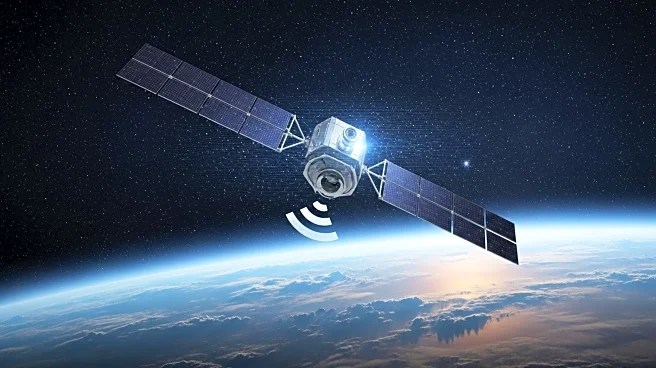What's Happening?
A recent research paper presented at the Annual Computer Security Applications Conference has uncovered vulnerabilities in satellite internet services, including those provided by T-Mobile. The study,
conducted by scientists from the University of Maryland and the University of California, San Diego, found that unencrypted transmissions could be intercepted using equipment costing approximately $800. This vulnerability potentially exposes sensitive data from military, corporate, and personal communications. While T-Mobile has reportedly taken steps to address the issue, other providers remain unnamed and have yet to implement fixes. The researchers have spent the past year warning satellite operators about the risks of transmitting unencrypted data.
Why It's Important?
The findings highlight significant security concerns for satellite internet users, including individuals, businesses, and government entities. The ability to intercept unencrypted data poses risks to privacy and national security, as sensitive information could be accessed by unauthorized parties. This situation underscores the need for improved encryption standards and security protocols in satellite communications. Companies like T-Mobile, which have begun addressing these vulnerabilities, may enhance their reputation for security, while those that fail to act could face scrutiny and potential loss of consumer trust.
What's Next?
The research may prompt further investigations and regulatory scrutiny into satellite internet security practices. Providers that have not yet addressed the vulnerabilities may face pressure to implement encryption measures to protect user data. Additionally, there could be increased advocacy for industry-wide standards to ensure secure satellite communications. Stakeholders, including government agencies and consumer advocacy groups, may push for transparency and accountability from satellite internet providers.
Beyond the Headlines
The ethical implications of unencrypted satellite transmissions raise questions about the responsibility of service providers to protect user data. As satellite internet becomes more prevalent, the need for robust security measures will grow, potentially influencing future technological developments and regulatory policies.











